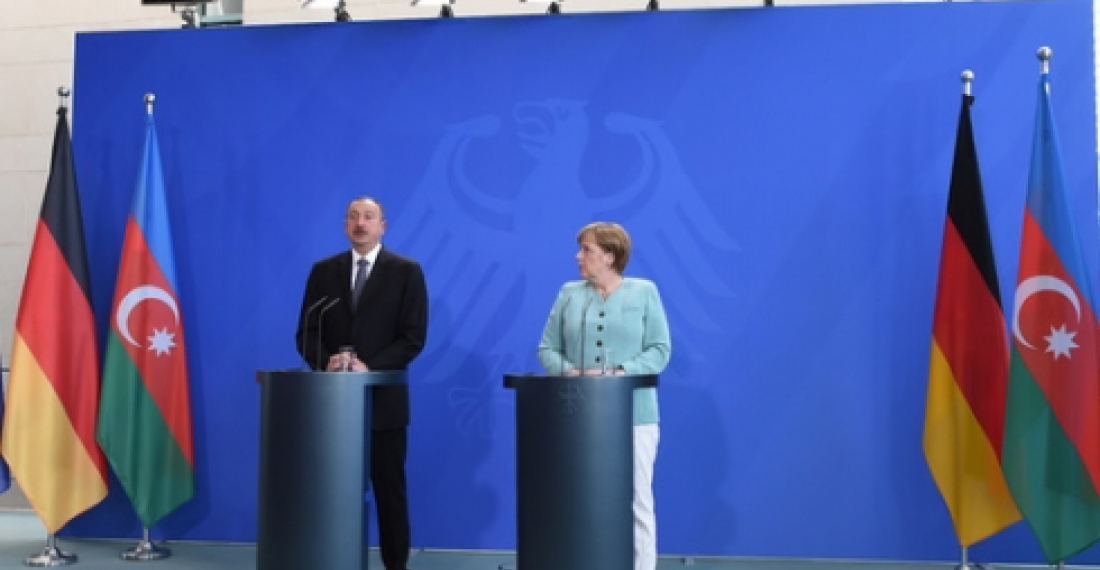Россия играет ключевую роль в решении нагорно-карабахского конфликта, заявила канцлер Германии Ангела Меркель на совместной пресс-конференции со своим азербайджанским коллегой.
Меркель, которая, как известно, поддерживает самые близкие отношения с Владимиром Путиным среди западных лидеров, вновь заявляет о поддержке Германией дипломатического урегулирования конфликта под эгидой Минской группы ОБСЕ. ОБСЕ в настоящее время возглавляет представитель Германии, Франк-Вальтер Штайнмайер.
"Россия, конечно же, будет играть ключевую роль в урегулировании нагорно-карабахского конфликта. Мы используем наши контакты для содействия российскому правительству, а также сопредседателям Минской группы (Франция и США) в урегулировании нагорно-карабахского конфликта", сказала Меркель.
Меркель и Алиев выступили на открытии бизнес-форума в Берлине. Алиев повторил её слова касательно России, заявив, что страна играет "очень конструктивную" роль в работе по урегулированию карабахского конфликта.
Россия поддерживает тесные связи и с Арменией, и с Азербайджаном, и поставляет оружие в обе страны. Тем не менее, в качестве союзника по Евразийскому экономическому союзу, Армения покупает вооружения по льготным ценам.
Меркель и Алиев также обсудили экономические реформы и попытки диверсифицировать и развивать ненефтяной сектор в Азербайджане.
источник: commonspace.eu по материалам агентств
фото: president.az






